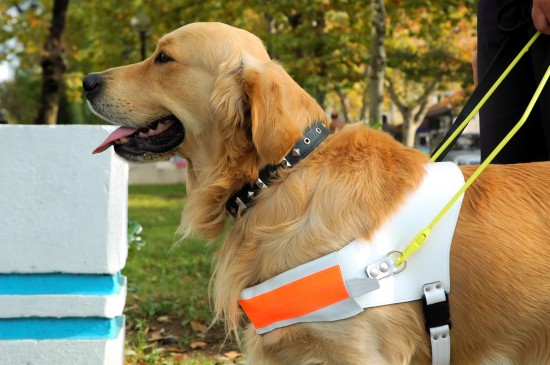If you've ever had a dog allergy problem, you already know how troublesome this can be. But if you're new to owning a dog, you might not ever know what to expect or how to handle it once you recognize there is a problem. However, if you own a dog for any period of time, you will surely have to handle the question of allergies in your dog's life. So, here's what you need to know to be the best dog owner you can be.
What are Dog Allergies?
Just as in humans, dogs are susceptible to having problems with allergens. When these allergens come into contact with your dog, they can cause the dog's body to react in various ways. If the allergens cause the dog's body to respond, the body then creates histamines in the body - which are what cause the symptoms that you can see in your dog. These symptoms include:
- Frequent itching
- Chewing
- Biting on the tail
- Biting the stomach
- Biting the insides of the hind legs
- Licking and chewing the paws
- Sneezing
- Coughing
- Watery eyes
- Vomiting
- Diarrhea
- Hives
- Rashes
Actually, dogs react in the same way that humans do to many allergens, so if you notice any symptoms like you would have when you were having an allergic reaction, that's probably a sign of allergy in your pet as well.
Finding the Cause of the Allergies
In order to treat the allergies in your dog, you need to figure out where the allergic reaction is coming from. Once you've found this source, you will be able to stop the allergic reaction from happening. But the process of determining the source can be trickier than it seems. Here are a few different ways to start sorting out the cause:
- Create a diary of your dog's activities - By writing down the things your dog was doing at the time of the allergic reaction or what the dog was doing right before, you might begin to see where the allergy came from. For example, if you notice that your dog is always sneezing after coming in from playing in the woods, there might be a connection there.
- Create a diary of the dog's diet - If you're feeding your dog new things on a regular basis, that might cause allergies or reactions in your dog as well. By taking time to consider what your dog might be ingesting that is making them sick, you will be able to eliminate those foods from the diet and help reduce the reactions.
- Check the skin often - When you check the skin and the coat of your dog on a regular basis, you can find fleas and ticks that might be causing your dog's allergic reactions. In some cases, you might even be able to find these fleas and ticks before they cause large problems in the dog's health.
- Check with the veterinarian - Some vets are able to do allergy tests on the dog to see if there are any allergy problems that come up. This is often the last step in determining the cause of your dog's allergy problems when you can not find any obvious causes on your own.
Treating Allergies in Dogs
Just as with human allergies, some veterinarians might want to prescribe allergy medication to help fend off the reactions in certain dogs. Sometimes the symptoms are just too uncomfortable in the dog, leading them to having troubles with their everyday activities and medication is a great option to help them get back on their feet. You will have to give your dog this medication on a regular basis to ensure that they are protected from allergic reactions.
Of course, the best way to help treat allergies is to avoid the causes in the first place. By making sure you are reducing or eliminating the cause of the allergic reaction, you will be able to avoid troubles with the dog's allergies. Prevention of things like fleas and ticks will go a long way in keeping your dog healthy and happy.
Another way to treat allergies in your dog is to make sure always cleaning the skin and the coat of your dog to reduce the chances of ticks and fleas and pollen staying on the surface and causing troubles. Try using a good dry shampoo as recommended by your vet to keep the fur clean of allergens during high allergy times of the year.
The fact is that dogs are just as prone to allergies as their human owners, so if you want to make sure that you are doing the best that you can for your dog, you need to practice prevention and treatment as quickly as you identify the source of the allergy. Neither of you has to live with allergies.

 Thinking Like A Cat - What Does Your Cat Really Need To Be Happy?
Thinking Like A C
Thinking Like A Cat - What Does Your Cat Really Need To Be Happy?
Thinking Like A C
 8 Tips On How To Keep Your Cat Healthy Throughout Their Lives
8 Tips On How To
8 Tips On How To Keep Your Cat Healthy Throughout Their Lives
8 Tips On How To
 Whom to visit for the ventilated Chicken Runs in the market?
Whom to visit for the ventilated Chicken Runs in the marke
Whom to visit for the ventilated Chicken Runs in the market?
Whom to visit for the ventilated Chicken Runs in the marke
 How Do Partially Sighted People Clean Up After Their Guide Dogs?
How Do Partially
How Do Partially Sighted People Clean Up After Their Guide Dogs?
How Do Partially
 Some Advice And Things To Think About If You Wish To Breed From Your Pet Dog
Some Advice And T
Some Advice And Things To Think About If You Wish To Breed From Your Pet Dog
Some Advice And T